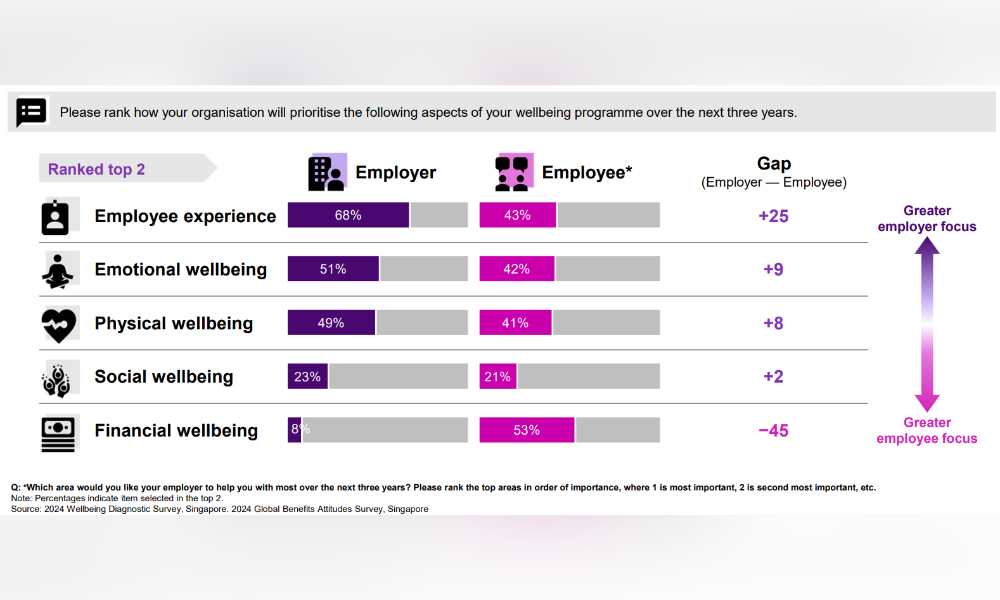
New report shows employees missing out on financial wellbeing benefits

Singapore is seeing a significant disconnect between the benefits employers offer and what employees need, according to a new report from WTW.
It found that 53% of employees in Singapore want help with their financial wellbeing, emerging as their top concern in terms of overall wellbeing.
However, only eight per cent of employers are prioritising financial wellbeing in terms of benefit programmes, according to the report, which stated that employer priorities are "misaligned" with employees' needs.
"There is a disconnect between the wellbeing areas that employers are investing in and what employees are saying they need help with," said Audrey Tan, head of health and benefits for Southeast Asia and Singapore at WTW, in a statement.
According to Tan, one way for companies to provide more support is by "setting the right wellbeing priorities."
"It's important that employers focus on getting the right programmes in place to support the varied needs of their workforce, as well as creating an enabling environment that promotes the services, they make available," she said.
Despite missing the mark on financial wellbeing needs, employers are meeting the needs of employees in other areas. According to the survey, 43% of employees want help on improving employee experience, which 68% of employers are currently prioritising.
Their other top areas of concern include their emotional, physical, and social wellbeing, concerns that the report found are being met by organisations.

"Companies see wellbeing as a top priority and aspire to make wellbeing an essential part of their human capital strategy to better compete for talent," Tan said.
"Employers here are aiming up as two-fifths (44%) look to make wellbeing a foundational element of their human capital strategy in the next three years compared to only 20% today."
With emotional wellbeing ranking the second-highest concern for employees, Tan suggested the implementation of programmes that are geared towards "engaging employees on mental health issues" and creating social connections.
"Lifestyle changes are also effective in helping manage mental health, with those seeking treatments benefitting from counselling and medication," Tan said.
According to Tan, the war for talent is no longer just about pay as employees put higher levels of appreciation on employee benefits.
"As companies in Singapore navigate key operational changes to their human capital strategies ahead including providing opportunities for employees to reskill, policies and practices to support working parents, and flexible work arrangements, employers need to also establish a mechanism for prioritising programmes and evaluating ongoing effectiveness versus cost in enhancing their benefits offerings, with choice becoming more widespread," Tan said.
"This not only helps to improve retention and engagement of their workforce but for employees, it can have a positive impact on culture, trust, and fairness."
The 2024 Wellbeing Diagnostic survey was carried out between March and April 2024, with close to 100 employers polled.